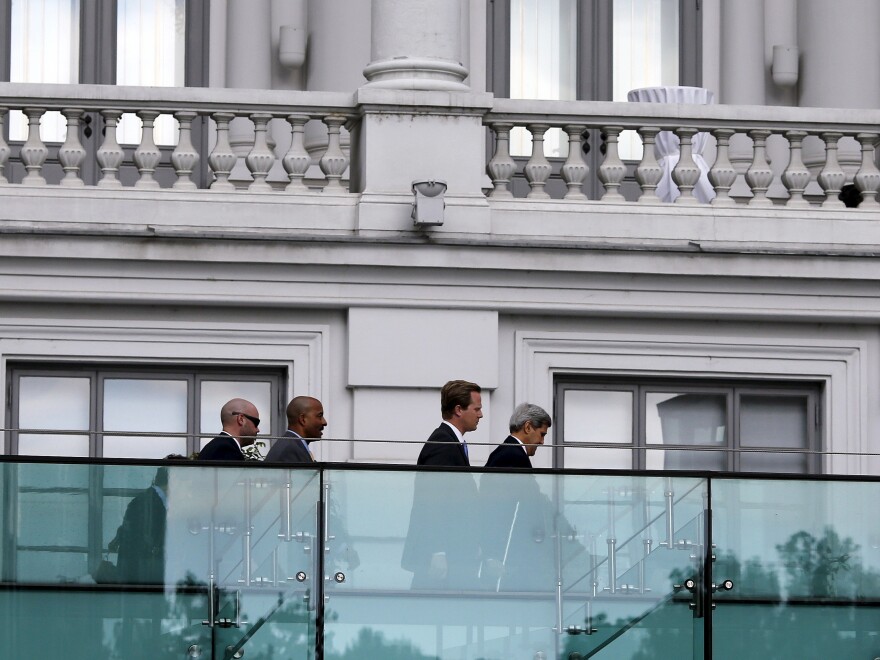Update at 1:20 p.m. ET
Secretary of State John Kerry says the United States and its five negotiating partners working to hammer out a deal to curb Iran's nuclear program "will not rush and ... will not be rushed" into a deal.
He said that "despite all of the progress" made at the negotiating table, key issues remain unresolved.
"If in the end we are able to reach a deal, it has to be one that can stand the test of time," he said.
Kerry's statement appeared to narrow the chances that a final agreement can be reached before midnight, the deadline that would trigger Congress to take two months instead of one to review any pact. That would in turn delay the lifting of U.S. sanctions.
As NPR's Peter Kenyon explains from Vienna, "all sides here say the focus is on getting a good deal, not meeting a deadline. Even so, the prospect of a 60-day congressional review of a deal instead of 30 days is not pleasant for the White House. But in order for that to happen, a draft of the deal must reach Capitol Hill by tonight, and extremely difficult issues remain."
The Associated Press quotes Iran's President Hassan Rouhani as saying his nation "was preparing for a 'post-sanctions' era, suggesting that a deal may be in sight to curb the Iranian nuclear program in exchange for the lifting of economic sanctions. His foreign minister, meanwhile, opined on Twitter that 'with mutual respect, anything possible.' "
The original deadline for the talks was June 30, but that was later extended.
The meetings include the so-called P5+1 powers — Britain, China, France, Germany, Russia and the United States.
Russian President Vladimir Putin reportedly told Rouhani on Thursday that he hoped an agreement could be reached soon.
"Putin underlined the positive dynamic in the talks on Iran's nuclear program and expressed hope that the necessary compromise will be found in the near future," said Kremlin spokesman Dmitry Peskov, according to Reuters.
The biggest obstacle remaining is the United Nations embargo on conventional weapons sales to Iran. The Western powers, with the exception of Russia, insist it must remain in place.
As Reuters notes:
"The U.N. weapons and missile sanctions were imposed with Russia's consent nearly a decade ago, but Moscow has become hostile to the idea of sanctions since the United States and European Union began sanctioning it for annexing Ukraine's Crimea peninsula last year. Moscow and Tehran are interested in finishing a deal on the sale to Iran of Russian anti-aircraft missiles.
"The Kremlin signed a decree in April lifting a self-imposed ban on the delivery of the S-300 missile system to Iran, though the missiles have yet to be delivered."
Copyright 2021 NPR. To see more, visit https://www.npr.org.


